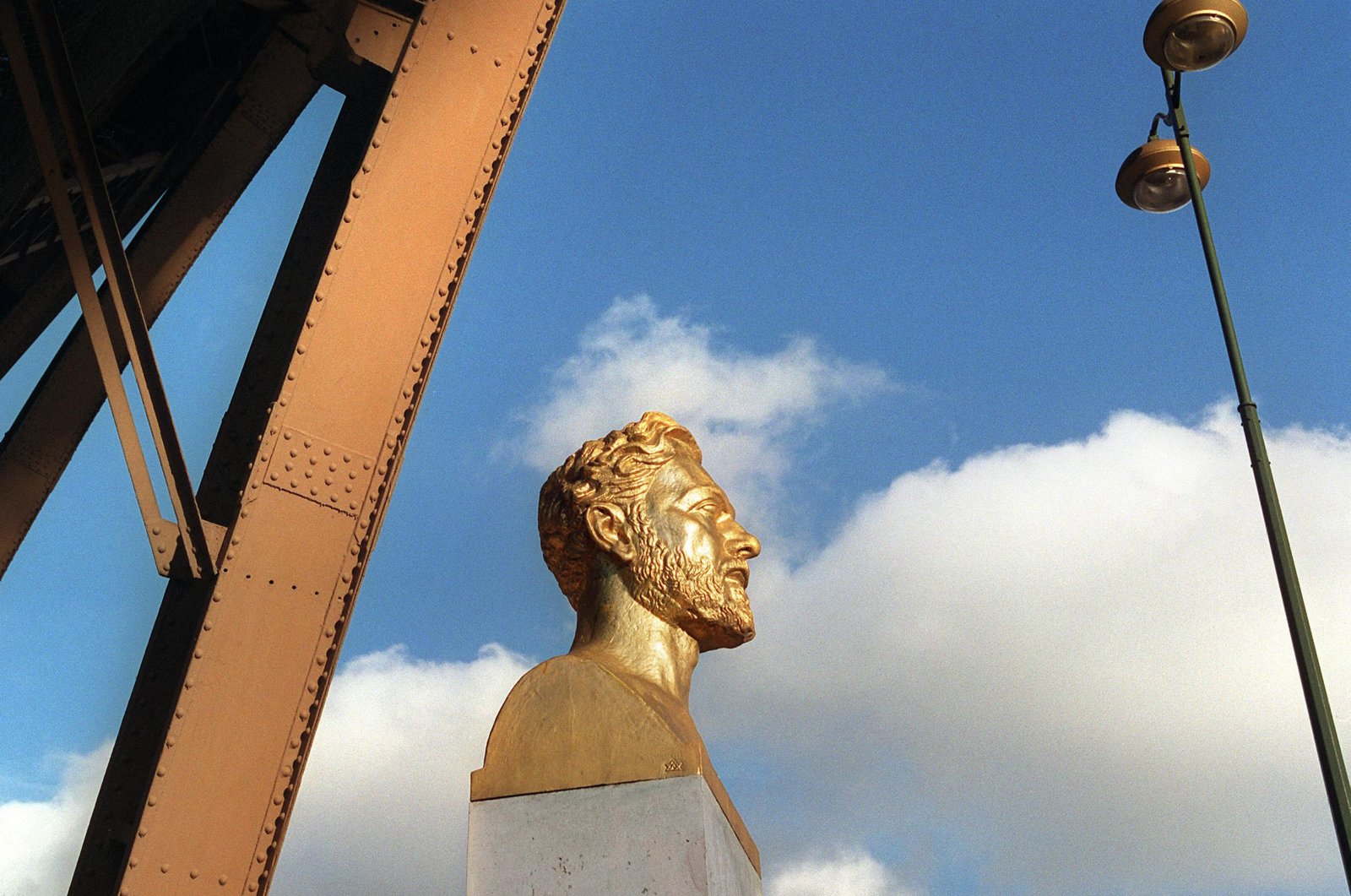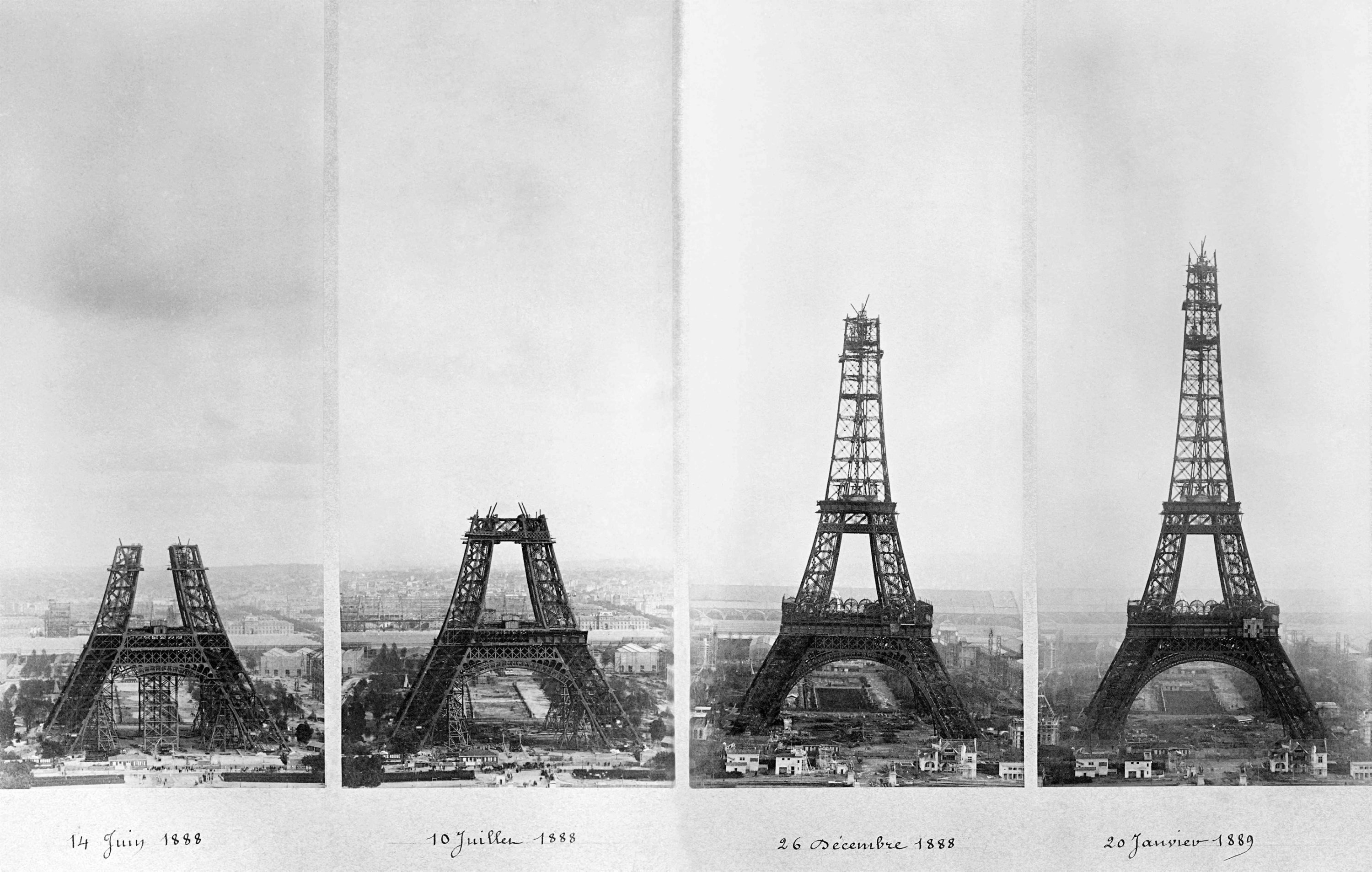
Gustave Eiffel, a French engineer and entrepreneur, will always be commemorated for constructing the iconic tower that has defined the Parisian skyline for more than a century.
But the father of the Eiffel Tower also designed hundreds of other landmarks across the globe and even patented a system of underwater "bridges" to run under the Channel.
Here are five things to know about the engineer and inventor, who died 100 years ago on Dec. 27, 1923, at the age of 91.
Bonickhausen Tower?
Eiffel designed the tower that would bear his name for the World Fair in Paris in 1889.
But the tower, which came to symbolize France, could very easily have had a German name.
Eiffel, who had German roots, was born Alexandre Gustave Bonickhausen dit Eiffel in 1832 in Dijon but he dropped the German part of his surname after the 1870 Franco-Prussian war, fearing it could damage his career.
Erected in record time, the 7,000-tonne, 300-metre (1,052-foot) "Iron Lady" was the tallest human-made structure in the world for four decades.
Commenting on its place in history, the Bureau International d'Expositions, which organizes World Expos, says it "marked the pinnacle of iron architecture, and set the pace for the skyscraper frenzy that would follow in the 20th century."

Projects on 5 continents
The tower came toward the end of Eiffel's career, during which he built around 500 structures across five continents.
He built his reputation as a builder of railway bridges but also used his metal wizardry to build the Pest railway station in Hungary, lighthouses in Finland and Madagascar, the structure of the Saigon Central Post Office in Ho Chi Minh City and the iron framework of the Statue of Liberty in New York.
He also designed portable bridges, delivered around the world in kits.
Channel tunnel
Never short of ideas, Eiffel proposed to build what he described as a bridge under the Channel to link France with Britain.
His 1890 design envisaged a system of concrete-coated metal tubes built on supports resting on the sea bed.
The project never saw the light of day, but 104 years later the Channel Tunnel linking Britain and France, which measures 169 Eiffel Towers placed end-to-end, was launched to great fanfare.
Panama fiasco
Eiffel was as much an entrepreneur as an engineer. In 1887, his company won the contract to build locks for the Panama Canal – the biggest deal of his career.
However, poor management by Ferdinand de Lesseps, the Frenchman who had overseen the successful Suez Canal, caused the project to collapse, resulting in one of the biggest financial scandals of the 19th century.
De Lesseps and Eiffel were both charged with fraud and sentenced to prison and hefty fines.
Although their convictions were later overturned, Eiffel's reputation had taken a battering and he retired from business.
Radio Eiffel
He devoted the last 30 years of his life to scientific research, with a particular focus on meteorology and aerodynamics.
The wind tunnel he built in a hangar at the foot of the Eiffel Tower was used to test more than 20 planes.
It is still used today by the construction, aviation, shipping and automotive industries to test the effects of wind and air.
He also used research to save his illustrious tower, which was commissioned on the understanding that it be dismantled after 20 years.
He installed a meteorology station on the third floor, but it was the addition of a giant radio antenna in 1921 that saved it from the wrecking ball.
